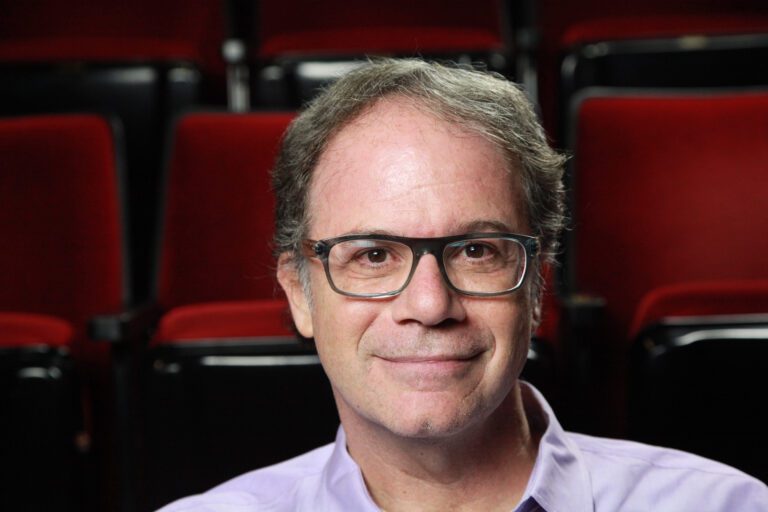The life of an actor is full of uncertainty—auditions, sporadic gigs and periods of unemployment. Dealing with the ups, downs and uncertainty of incoming finances can be overwhelming, especially when you’re focused on building your career. This can lead to stress, anxiety, depression and a host of other potentially harmful mental health qualities if not properly managed.
Here are some practical tips to help you take control of your finances and prioritize your mental well-being as an actor.
Understand the Nature of Your Income
One of the first steps in managing your finances as an actor is understanding the irregular nature of your income. Unlike traditional 9-to-5 jobs, acting work often comes in waves—there may be months of steady pay, followed by long dry spells. You may also have multiple income streams—whether it’s from acting gigs, side jobs or freelance work—which can make managing your money feel even more chaotic.
The best thing you can do to be proactive is to budget wisely. Start by separating your earnings from your expenses and track both regularly. A good way to start is by creating a monthly budget that accounts for your essentials, while also leaving room for savings and investments. This not only gives you control but also helps you avoid financial anxiety when work is sparse.
“Make a list of needs versus wants, live within means, find side gigs to help carry you between jobs.” — Tala Johartchi, Best Life Therapy
This can help you to feel a sense of control by planning for stretches without work.
Earn, Save, Repeat
Given the uncertain nature of acting, having an emergency fund is crucial. This fund acts as a safety net for when auditions slow down, or you find yourself between gigs. While it can be hard to establish savings when you’re first starting out, even saving a small amount consistently can make a significant difference over time.
- The first is within the industry itself.
- The second is with a day job.
- The third is with a second career.
- The fourth is via an independent income (don’t we wish!).
- The fifth is via a mate or family.
“Day jobs can become demoralizing over time, commonly for creatives. Second careers easily become first careers as they start to take up all of one’s time. There is no easy answer to these real-life conundrums, but it helps to get as clear as possible on the pros and cons of each avenue, as for any given individual, one may prove a much better option than the others.” — Dr. Eric Maisel
Remember, a day job doesn’t have to be your identity or become your career. It’s helpful to look at it for what it is: stability, and a financial resource that allows you to maintain some peace of mind and pay your bills while you continue to audition.
Diversifying Income Streams
Many actors take on side gigs such as teaching, writing or even working in hospitality to ensure a steady flow of income. Side jobs don’t just pay the bills; they also allow you to invest in your career by paying for headshots, acting classes or travel for auditions.
Working in the service industry has long been a popular choice for actors. Positions are almost always available, depending on where you live and the flexibility with scheduling and short shifts are beneficial for auditions.
“Working in a restaurant is a good life lesson for anybody. My friend used to say that no one should be able to work in Hollywood if they haven’t worked in a restaurant. Understanding other people’s problems — that’s the cornerstone of the service industry, and it’s essential as an actor, or whatever field you’re in.” – Jon Hamm
You can also explore digital avenues, like starting a YouTube channel or podcast, to leverage your creativity in new ways while earning income. Having this flexibility can help to reduce stress in an actor’s life. By allowing yourself to earn some income on your own time, you get the best of both worlds and can rest easy that you can collect your checks, and make those last-minute callbacks without risking losing your source of income.
Save for Taxes
Freelancers and self-employed actors are responsible for paying their own taxes. This can be tricky to navigate if you’re not used to managing tax deductions or quarterly payments. It’s wise to set aside a portion of every paycheck—usually around 25-30%—for taxes, to avoid being caught off guard when tax season arrives.
If possible, work with an accountant or financial planner who understands the nuances of taxes for actors. They can help you find deductions that apply to your profession, such as travel, wardrobe or professional development expenses. Maximizing your deductions can significantly reduce your tax burden, allowing you to keep more of your hard-earned money.
Taxes can seem daunting and stressful, but they don’t have to be. By being aware and educating yourself well ahead of tax season, you don’t have to stress about it when the time comes.
Invest in Your Career
One of the best investments you can make is in your career. Set aside money for ongoing professional development, such as attending acting workshops, hiring an acting coach or upgrading your portfolio with high-quality headshots. These are long-term investments that can pay off by helping you land better roles.
However, it’s important to balance investing in your career with living within your means. Don’t overspend on classes, workshops or gear if it puts you in a precarious financial situation. Be strategic about your spending by prioritizing what will have the most impact on your career at each stage so you don’t accidentally self-sabotage and throw yourself down a hole that’s hard to climb out of.
Live Within Your Means
One of the biggest traps for actors is falling into the habit of living beyond their means when they land a big job or receive a large paycheck. It’s important to resist the urge to overspend, especially during financially abundant periods. Lifestyle inflation can quickly eat away at your savings, leaving you vulnerable during slower times.
Focus on creating a lifestyle that’s sustainable and aligns with your long-term goals. Splurge when appropriate, but always keep the bigger picture in mind—financial security and career longevity. Sacrifices now can lead to massive gains down the road. If you’re feeling down, know that you’re not alone. Some of the biggest actors today struggled for years, if not decades, before they got where they are. It can help to look up a seemingly larger-than-life star’s journey to fame, feel less alone on your path, and be a boost of motivation to keep going.
“When you’re trying to make it in Hollywood, you feel your mortality on a day-to-day basis. It’s missing out on jobs, your bank account gets lower, people are moving past you. You’re wondering, ‘Is this thing actually going to happen?’ So, the only thing you have control over is what you create and how to prevent your mortality from happening tomorrow.” – Glen Powell
Plan for the Future
It can be easy to focus on the present, especially when acting work demands your full attention. But planning for the future, including retirement, is just as crucial. Consider contributing to a retirement savings plan such as a 401(k) or an IRA. The earlier you start, the more time your investments have to grow.
Financial planning for the future also means securing health insurance and other benefits, which can often be overlooked in the gig economy. Explore options through unions, like SAG-AFTRA, or other programs tailored for freelance professionals.
Thrive as an Actor, Secure in Your Finances
The uncertainty of an acting career is undeniable, but you can take control of your financial future by being proactive and informed. Building a solid financial foundation allows you to thrive in your career, knowing that you have a safety net in place.
By budgeting wisely, investing in your career and saving for the future, you’ll be better equipped to handle the ups and downs of the acting world.
Take charge of your finances today, so you can focus on what truly matters—your craft.
At Casting Networks, we understand the unique challenges you may face when submitting for roles and looking for the next booking. That’s why we offer our Thrive program as part of our Premium membership in order to provide flexible, affordable access to therapy, mental health resources and other healthcare benefits to support actors in maintaining their well-being. Investing in your mental health is not just about preventing burnout; it’s about thriving in both your career and personal life.
Enroll in Thrive today and take the first step towards a healthier, more balanced life.
You may also like:













